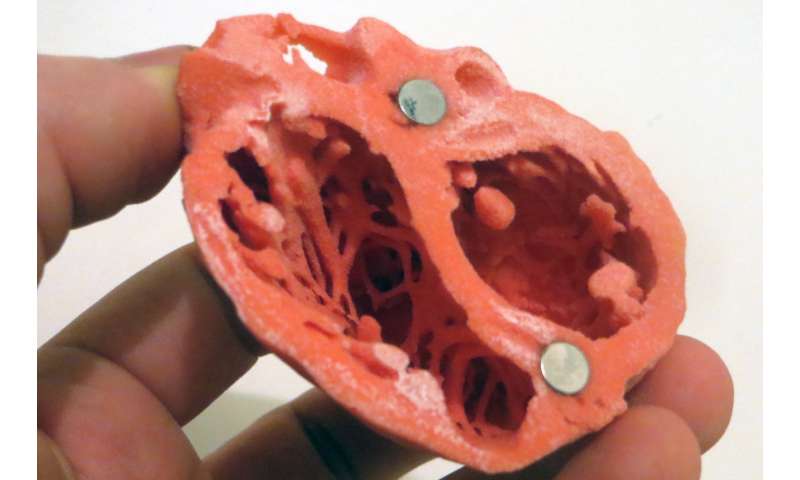
Implantable cardioverter-defibrillator (ICD) use is associated with reduced short- and long-term mortality in patients with heart failure, according to late breaking research presented in a Hot Line Session today at ESC Congress 2019 together with the World Congress of Cardiology and published in Circulation.
Patients with heart failure are at increased risk of potentially lethal ventricular arrhythmias (heart rhythm disorders) and sudden cardiac death. ICDs are used to correct these arrhythmias and prevent sudden death.
ESC guidelines recommend an ICD for primary prevention in symptomatic patients with heart failure with reduced ejection fraction (HFrEF), provided they are expected to survive substantially longer than one year with good functional status. It is called primary prevention because patients have not had a ventricular arrhythmia before.
Principal investigator Dr. Benedikt Schrage of the Karolinska Institutet in Stockholm, Sweden said: “Most randomized trials on ICD use for primary prevention of sudden cardiac death in HFrEF enrolled patients more than 20 years ago. However, characteristics and management of HFrEF have substantially changed since then and it is not known whether ICD improves outcome on top of contemporary treatments. Furthermore, it is unclear whether ICD use is equally beneficial in subgroups such as both women and men or older and younger patients.”
This study investigated the association between ICD use and all-cause mortality in a contemporary HFrEF cohort with a focus on subgroups. The study population was compiled from patients in the Swedish Heart Failure Registry (SwedeHF) fulfilling ESC criteria for primary prevention ICD use. Propensity score matching was used to account for differences at baseline.
Of 16,702 eligible patients in SwedeHF, 1,599 (9.6%) had an ICD. Dr. Schrage said: “Among patients from SwedeHF fulfilling ESC criteria for primary prevention ICD use, less than 10% had the device. ICD use in Sweden is known to be lower than in other European countries (e.g. Germany or Italy). This could be because most heart failure patients are seen by primary care physicians and geriatricians who could be less inclined to accept device therapy and have a higher perception of contraindications compared to cardiologists.”
The propensity matched population consisted of 1,296 ICD users and 1,296 patients without an ICD. The researchers found that ICD use was associated with a 26% relative reduction in the risk of all-cause mortality at one year and a 13% relative reduction in the risk of all-cause mortality at five years. The five-year absolute risk reduction with ICD use was 3.1% leading to 33 patients needing to be treated to prevent one death in five years.
The short-term and long-term mortality benefit was consistent across subgroups, such as patients with or without ischemic heart disease, males and females, patients under 75 and 75 and older, those enrolled earlier versus later in SwedeHF and thus receiving less or more contemporary treatment, and also for patients with or without cardiac resynchronization therapy.
Source: Read Full Article



